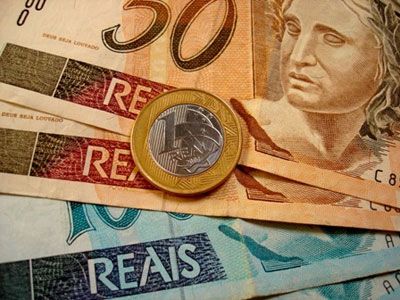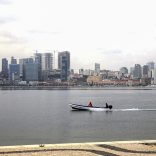Brazil's Bolsonaro supporters protest against Supreme Court, President Lula
Brazil Real Falls as Goldman Sachs Cites Fiscal Insolvency Risk

Getty Images
Brazil’s real weakened after inflation surprisingly accelerated and as Goldman Sachs said the currency is poised to drop another 11 percent this year while the government struggles to contain consumer-price increases and shore up its budget.
Sentiment in Brazil remains distinctively negative and the dominant view is that things will get worse before they get better, Alberto Ramos, a senior economist at the bank, wrote in a report Tuesday after a three-day visit to Brazil and meetings with policy makers at the Finance Ministry, central bank, national development bank and Petrobras.
“There is a growing perception among local investors and analysts that Brazil is on a trajectory that could eventually lead to fiscal insolvency over the medium-term,” Ramos said. “The main concern is that the authorities are yet to show either strong willingness or political strength to deal successfully with these growing challenges.”
The currency slid 0.3 percent to 3.9588 per dollar in Sao Paulo. Goldman Sachs expects the real to depreciate to as weak as 4.4 per dollar this year, about 10 percent lower than current levels.
The real is the worst performing major currency over the past 12 months, down 27 percent as the country heads to its deepest recession in more than a century and the government posts a record budget deficit. Policy makers have struggled to pass measures that would help the economy amid an effort to impeach President Dilma Rousseff that has dominated the country’s political discourse.
The currency gained Monday after Brazilian police carried out another series of search and arrest warrants related to the so-called Carwash scheme of alleged kickbacks at the state-run oil company, Petroleo Brasileiro SA. An arrest warrant for Rousseff’s former campaign strategist fueled speculation that the electoral court, known as TSE, could force new elections this year. Eurasia Group put the probability at 20 percent.
“The Carwash probe and its potential impact on budget consolidation are causing a pullback in carry positions at the moment,” said Ipek Ozkardeskaya, an analyst at London Capital Group. Carry investors are those who buy the real to benefit from the currency’s high interest rates relative to the dollar and euro. Brazil’s benchmark is 14.25 percent.
Inflation topped all analyst forecasts in the year through mid-February, accelerating to 10.84 percent after the central bank refrained from raising the lending rate, which is already the highest since 2006, and the government proposed loosening fiscal targets.
Swap rates on the contract maturing in January 2017, a gauge of expectations for interest-rate moves, rose 0.025 percentage point to 14.205 percent.












Leave a Reply
Be the First to Comment!
You must be logged in to post a comment.
You must be logged in to post a comment.